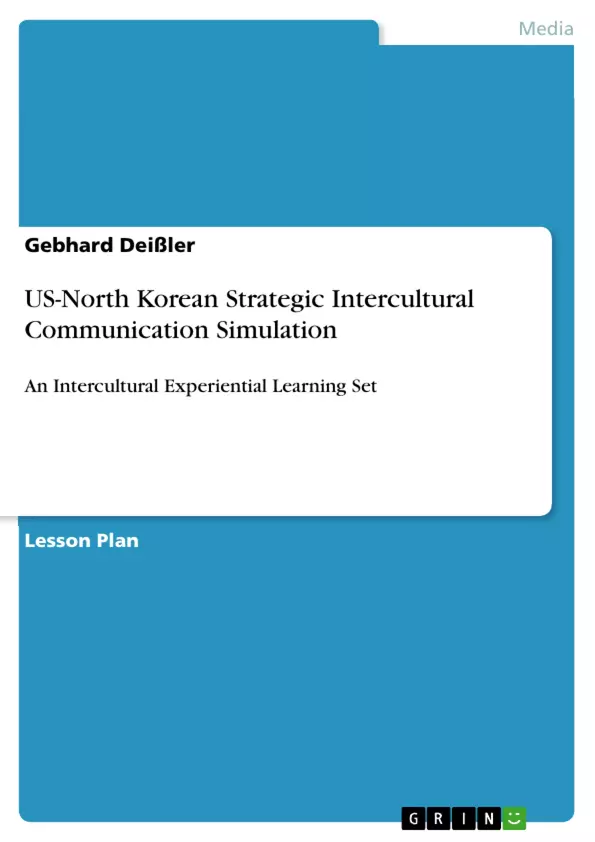The following is based on a hand-out to international business students in the context of the subject Intercultural Relations and Communication of October 2006, designed to develop intercultural sensitivity and competence through an exploration of US–North Korean intercultural relations. As one can see, the question has not been solved to this day. On the contrary, presently, North Korea is threatening the world with war.
Inhaltsverzeichnis (Table of Contents)
- A Strategic Intercultural Simulation (Experiential Learning)
- The US Versus North Korea, A Topical Bilateral Interfacing of Societal/Political Cultures
Zielsetzung und Themenschwerpunkte (Objectives and Key Themes)
This document outlines a highly participative group activity designed to foster intercultural sensitivity and skills. The activity focuses on the complex relationship between the United States and North Korea, aiming to enhance cultural intelligence (CQ) through the exploration of these contrasting societal and political cultures.
- Intercultural Communication and Relations
- Cultural Intelligence (CQ)
- US-North Korea Relations
- Societal and Political Cultures
- Experiential Learning
Zusammenfassung der Kapitel (Chapter Summaries)
- A Strategic Intercultural Simulation (Experiential Learning): Introduces a simulation designed to enhance intercultural understanding and skills. It highlights the use of a hands-on approach for learning about intercultural dynamics.
- The US Versus North Korea, A Topical Bilateral Interfacing of Societal/Political Cultures: Explores the complex relationship between the United States and North Korea, presenting it as a case study for understanding cultural differences and their impact on international relations.
Schlüsselwörter (Keywords)
The text focuses on intercultural communication, cultural intelligence, US-North Korea relations, societal and political cultures, experiential learning, and intercultural sensitivity. It examines the complexities of intercultural interactions and the importance of developing cultural awareness in a globalized world.
Frequently Asked Questions
What is the US-North Korean Strategic Intercultural Simulation?
It is an experiential learning activity designed for international business students to develop intercultural sensitivity by exploring the contrasting societal and political cultures of the US and North Korea.
What is Cultural Intelligence (CQ)?
Cultural Intelligence is the ability to function and manage effectively in culturally diverse settings. This simulation aims to enhance this specific skill set.
Why is the US-North Korea relationship used as a case study?
It represents an extreme bilateral interfacing of different political and social values, making it an ideal example for studying deep-seated intercultural conflicts and communication barriers.
How does experiential learning help in intercultural communication?
By participating in simulations, students move beyond theory and gain hands-on experience in navigating cultural differences, which fosters greater empathy and practical skills.
Is the simulation relevant to current world events?
Yes, the tensions between the US and North Korea remain a significant global issue, highlighting the ongoing need for intercultural competence in international relations.
- Quote paper
- D.E.A./UNIV. PARIS I Gebhard Deißler (Author), 2013, US-North Korean Strategic Intercultural Communication Simulation, Munich, GRIN Verlag, https://www.grin.com/document/213084



